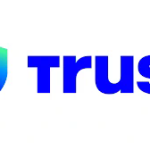Understanding Trustmark National Bank: Services, History, and Financial Insights
**Introduction**
Trustmark National Bank is a banking institution that has been serving customers for nearly a century. With deep roots in the southeastern United States, it offers a wide range of financial services to individuals, businesses, and communities. This article delves into the history, services, financial products, and overall impact of Trustmark National Bank, as well as how it has adapted to modern banking challenges, including the importance of online banking and customer accessibility through platforms like Trustmark’s login system.
**Historical Background**
Founded in 1889, Trustmark National Bank has a rich heritage that spans over a century. Its origins can be traced back to Jackson, Mississippi, where it began as a small community bank. Over the decades, Trustmark has expanded its operations through a series of strategic mergers and acquisitions, allowing it to grow its footprint throughout the southeastern United States.
In 1986, the bank was chartered as a national bank, a significant milestone that enabled it to broaden its service offerings and adopt more sophisticated banking practices. The bank has consistently demonstrated resilience through economic ups and downs, adapting to changing market environments while remaining true to its community-oriented foundation.

**Services Offered**
Trustmark National Bank offers a comprehensive range of financial services, catering to various customer needs. The primary service categories include:
1. **Personal Banking Services**: Trustmark provides an array of products designed for individual banking customers. These include savings and checking accounts, loans (personal, auto, and home equity), credit cards, and mortgage services. The bank’s personal banking platform emphasizes convenience and customer service, facilitating various online banking options.
2. **Business Banking Services**: Understanding the needs of small and medium-sized enterprises (SMEs), Trustmark offers tailored solutions for business clients. This includes business checking and savings accounts, commercial loans, lines of credit, treasury management, and merchant services.
3. **Wealth Management**: Trustmark’s wealth management division provides investment management, private banking, trust services, and financial planning. These services are designed to help clients grow and manage their wealth over time.
4. **Insurance Services**: Through affiliates and partnerships, Trustmark offers insurance products, including life, health, and business insurance.
5. **Investment Services**: The bank provides various investment products, including stocks, bonds, mutual funds, and retirement accounts. Their financial advisors help clients navigate the complexities of investment strategies.
**Online Banking and Trustmark Login**
In today’s digital age, online banking has become a critical component of financial services. Trustmark National Bank recognizes this shift and has developed a robust online banking platform to meet the needs of tech-savvy customers.
Through the Trustmark login system, customers can access their accounts anytime and anywhere. The online interface features:
– **Account Management**: Customers can view account balances, transaction history, and statements.
– **Funds Transfer**: Users can transfer money between accounts or to other people, making it easier to manage finances on the go.
– **Bill Pay**: The platform allows customers to pay bills online, which enhances convenience.
– **Mobile Banking**: Trustmark offers mobile apps that mirror the functionalities of their online platform, allowing users to perform banking transactions using their smartphones.
The significance of secure online banking cannot be understated. Trustmark invests heavily in cybersecurity measures to protect customer information, employing encryption and multi-factor authentication.
**Community Engagement and Corporate Responsibility**
Trustmark National Bank has always prioritized community involvement. The bank is committed to corporate social responsibility (CSR) and engages in various community service programs, providing financial literacy education, supporting local nonprofits, and participating in economic development initiatives.
The bank also has a strong commitment to fair lending practices. Trustmark strives to ensure that all individuals, regardless of background, have access to financial services. This commitment plays a vital role in promoting overall community growth and stability.
**Adapting to Economic Changes**
Over the years, Trustmark has navigated various economic climates, from the Great Depression to the 2008 financial crisis, and now the impacts of the COVID-19 pandemic. Each situation has required the bank to adapt its strategies and enhance its resilience.
For instance, during the COVID-19 pandemic, Trustmark stepped up to assist customers with tailored financial solutions. Programs like loan deferments, direct communication with clients about their options, and increased support for business loans under the Paycheck Protection Program (PPP) showcased the bank’s commitment to serving its customers during difficult times.
**Challenges and Opportunities in the Banking Sector**
Trustmark, like many banking institutions, faces challenges in a rapidly evolving sector. The rise of fintech companies has changed the competitive landscape, with startups providing innovative financial solutions and streamlined processes that appeal to younger demographics.
Trustmark is responding by investing in technology and enhancing customer experiences while maintaining its core values of trust and community. Opportunities for growth can be found in further digitization, increasing online service offerings, and exploring new partnerships within the fintech ecosystem to broaden its reach.
**Financial Performance and Stability**
Trustmark National Bank is publicly traded, and its financial performance is critical for stakeholders. Key performance indicators (KPIs) include net income, return on assets (ROA), return on equity (ROE), and the bank’s loan-to-deposit ratio. Analyzing these metrics provides insights into the bank’s operational efficiency, profitability, and overall financial health.
Moreover, Trustmark’s management is focused on maintaining a strong capital position to weather economic uncertainties. Their commitment to prudent risk management ensures that they can sustain operations during downturns and continue to serve their customers effectively.
**Customer Experience and Satisfaction**
The success of Trustmark National Bank hinges significantly on customer satisfaction. The bank employs various strategies to gather customer feedback and continuously improve its services. Regular surveys and community engagement allow Trustmark to capture client insights and adjust its offerings accordingly.
Understanding the importance of personal relationships in banking, Trustmark emphasizes community branches and personalized service rather than solely focusing on digital channels. This balance of technology and human touch is vital for building and sustaining customer trust.
**Conclusion**
Trustmark National Bank stands as a pivotal financial institution in the southeastern United States, recognized for its commitment to service, community, and financial health. As the banking landscape evolves, Trustmark continues to adapt, leveraging technology while remaining rooted in its values.
With a historical legacy of stability and customer-centric service, Trustmark National Bank is well-positioned to navigate the future of banking, ensuring that it meets the needs of its clients while contributing positively to the communities it serves. The bank’s ongoing developments in online banking, commitment to corporate responsibility, and adaptability to economic challenges illustrate its resilience and dedication to fostering a financially educated and empowered customer base.


